Pollinator-Friendly Hillside
Here at the History Center we're creating a new pollinator garden. We planted native species, and are limiting the use of herbicides and pesticides in order to provide food and habitat for a variety of pollinators.
We have pollinators to thank for many of the world's crops and flowers. Bees, butterflies, moths, flies, beetles, wasps, hummingbirds, bats, and even small mammals are all pollinators. They visit flowers for food (energy-rich nectar or protein-rich pollen) and transfer pollen grains between flowers of the same species, so plants can produce fertile fruits and seeds.
Pollinator gardens are environmentally friendly. Once established, native plants don't require fertilizer, herbicides, pesticides, or watering.
How can you help pollinators? It's easy!
- Grow native plants in your garden
- Plant a diversity of flowering species
- Don't use pesticides or herbicides
- Learn more from the University of Minnesota's Center for Urban Ecology and Sustainability
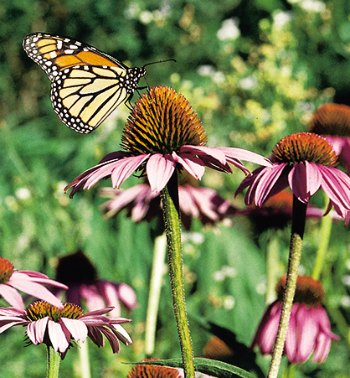
Monarch butterfly on purple coneflower. Credit: USDA Natural Resources Conservation Service.
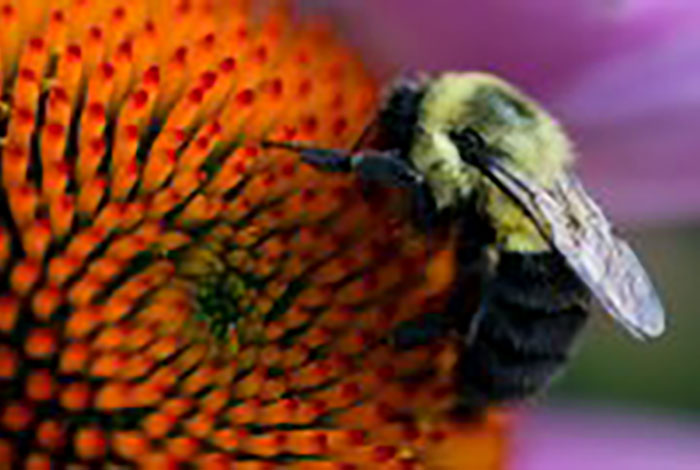
Bumblebee. Credit: Therese Scheller.
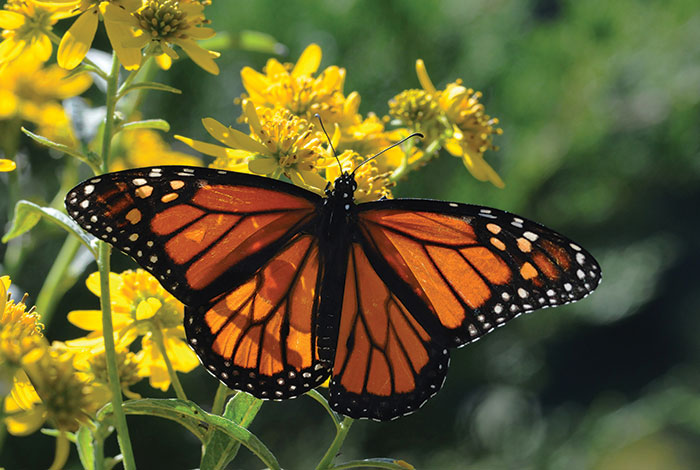
Monarch Butterfly. Credit: U.S. Fish and Wildlife Service

Monarch Caterpillar. Credit: USDA Agricultural Research Service
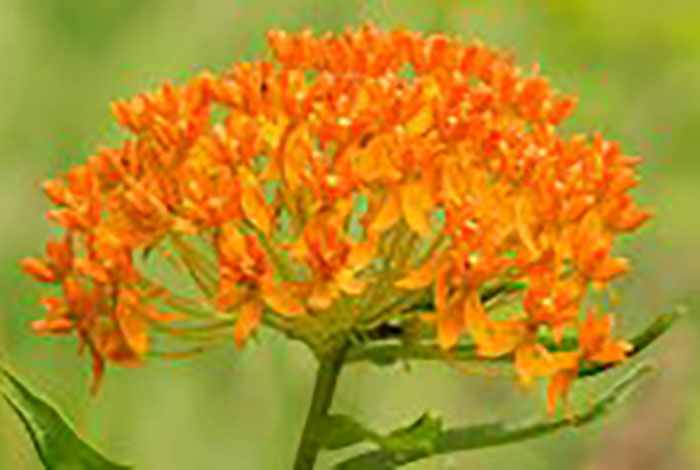
Butterfly Weed. Credit: Therese Scheller
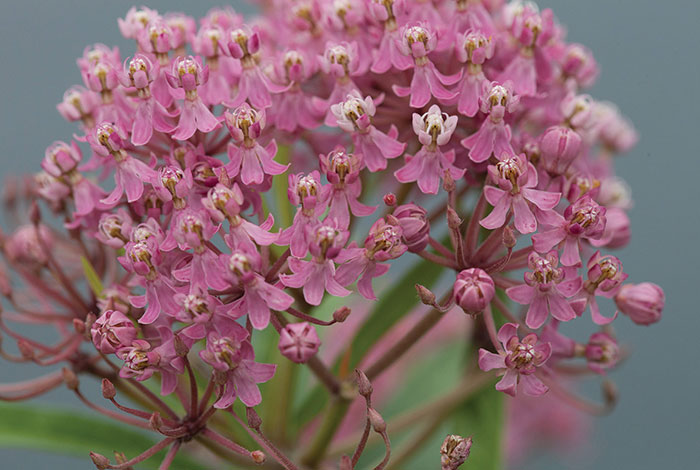
Common Milkweed. Credit: USDA Agricultural Research Service
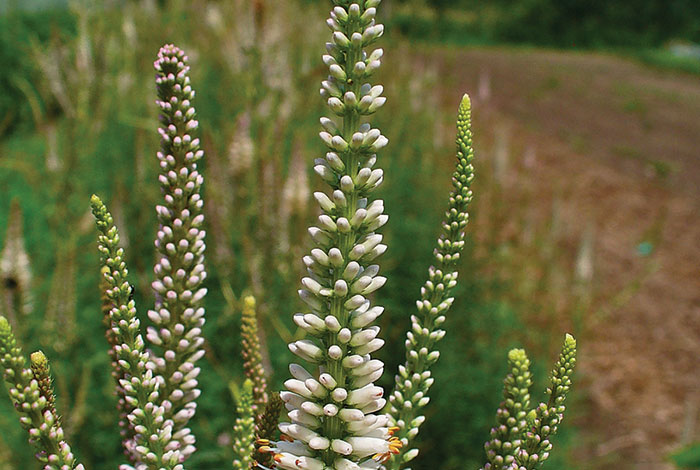
Culver's Root. Credit: Wikimedia Commons
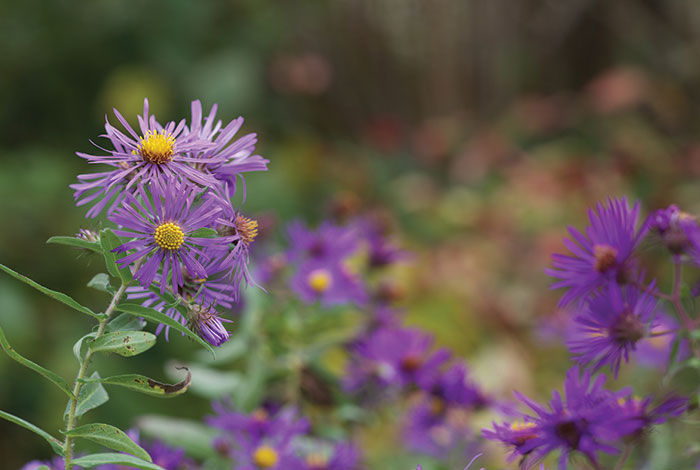
New England Aster. Credit: U.S. Fish and Wildlife Service
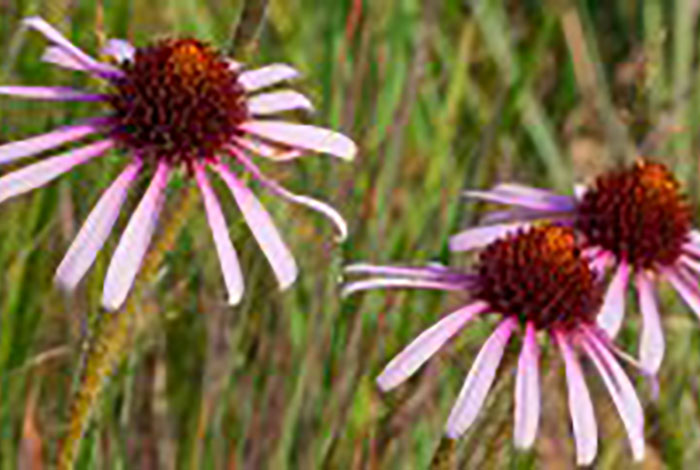
Pale Purple Coneflower. Credit: Therese Scheller
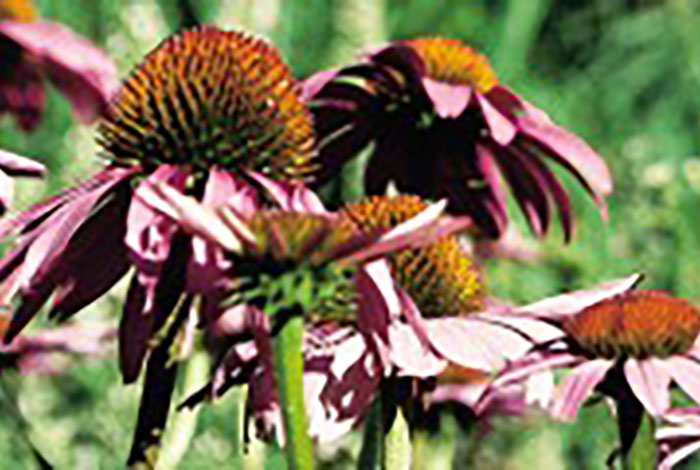
Purple Coneflower. Credit: USDA Natural Resources Conservation Service
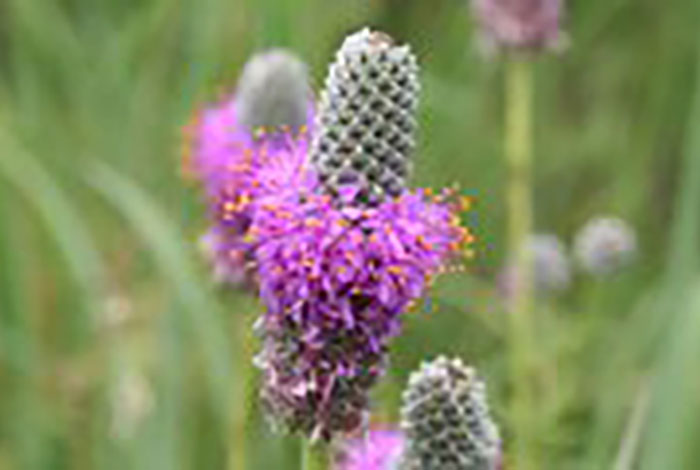
Purple Prairie Clover. Credit: Therese Scheller
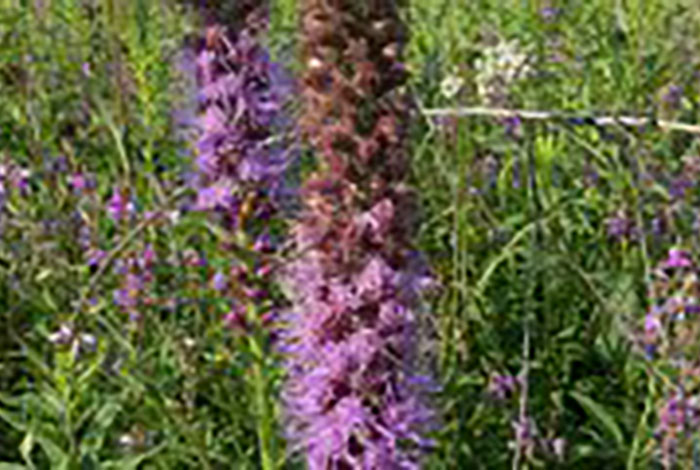
Prairie Blazing Star. Credit: Therese Scheller
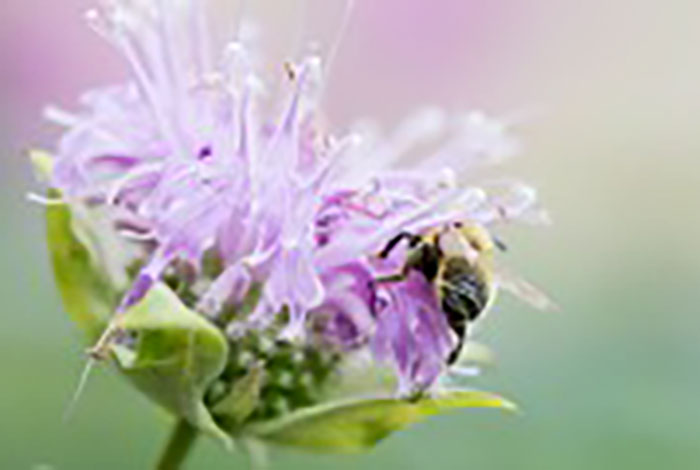
Wild Bergamot. Credit: Therese Scheller

